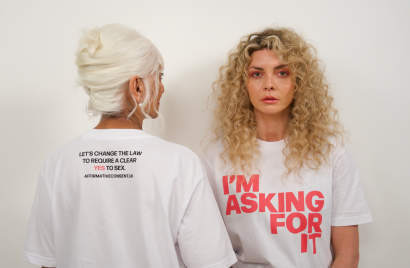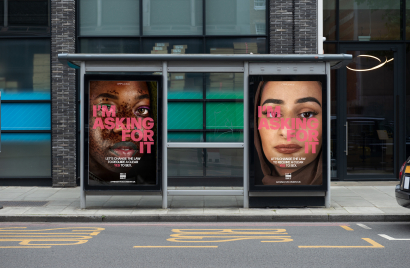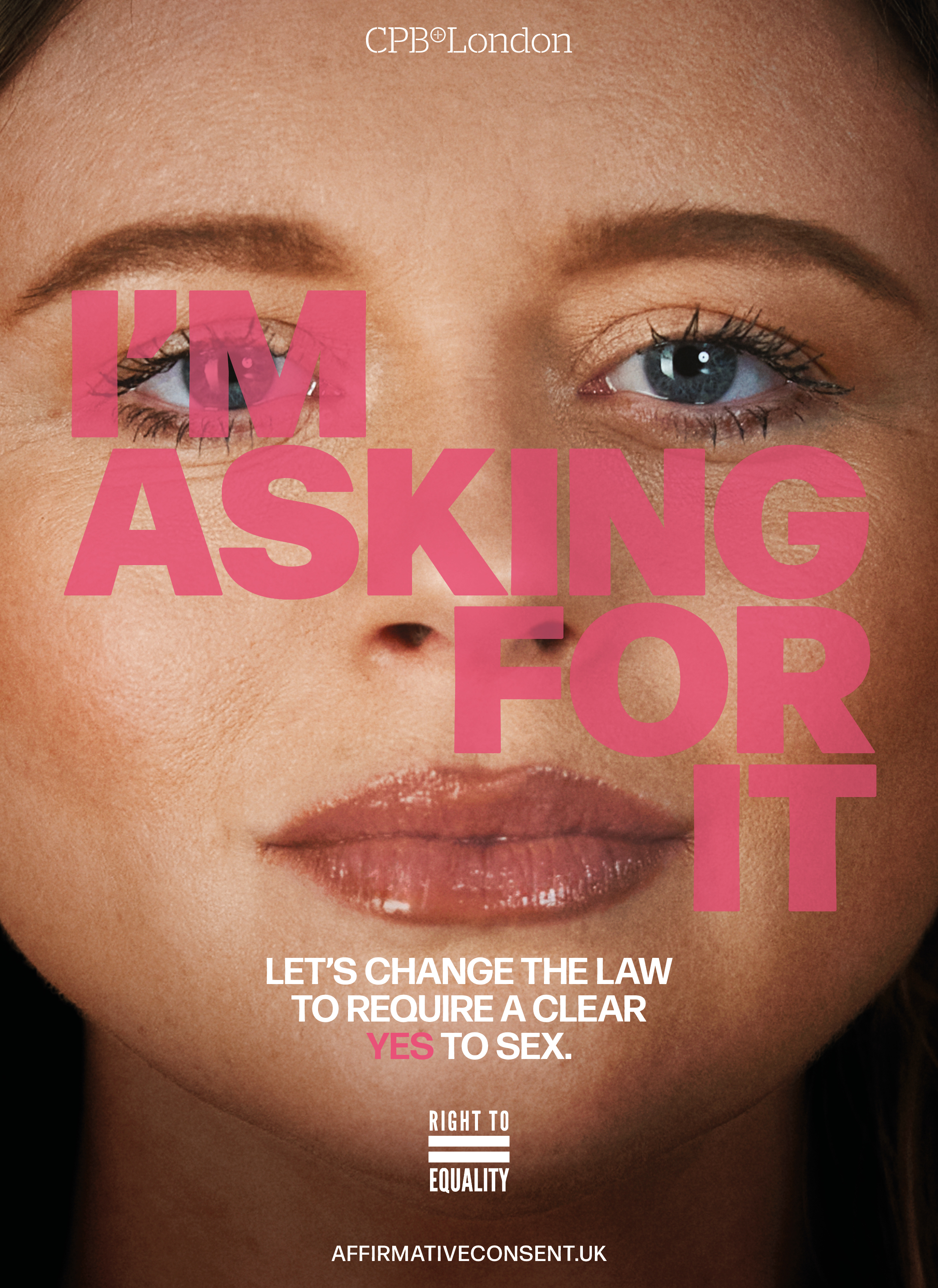
Virgin Media O2 launches summer online safety campaign
Virgin Media O2 and Internet Matters spotlight the importance of having conversations about online safety and starting them early

The campaign, featuring Emily Atack was created by CPB London, aims to challenge the current laws around consent.

CPB London and legal campaigning body Right to Equality are putting pressure on Parliament to update the UK’s 20-year-old sexual offence laws and introduce the affirmative consent model.
The campaign, which launches In the run-up to International Women’s Day, aims to change the law.
Currently, affirmative Consent, the active, voluntary, and mutual decision to engage in sexual activity, is not recognised in UK law, despite having recently been enshrined in law in other nations. Following a survey which found that despite conversations around consent, one in five UK adults believe that saying ‘no’ can mean ‘yes’ when it comes to sex. The ‘I’m asking for it’ campaign aims to remove this level of uncertainty to underline that only ‘yes’ means ‘yes’.
The campaign, created by CPB London, is fronted by actress Emily Atack and boldly says ‘I’m asking for it’. It features copy reading ‘Let’s change the law to require a clear yes to sex’. Subverting the phrase ‘she was asking for it’ to mean ‘I’m asking for consent’, the copy plays on a common trope often used in non-consensual situations.


Emily Atack has been widely praised for her activism in this space following her 2023 documentary, ‘Asking for it’ on online sexual harassment. The documentary explored the various loopholes that make it difficult to prosecute for sexual harassment.
“Making that documentary, I realised that it’s the lack of consent that gives so many men a thrill when they hit send on those obscene messages,” says Atack.
She continues: “I didn’t ask for them, I don’t want them - but that doesn’t matter. In fact, that’s the point. Consent, or the lack of it, is at the heart of so much sexual harassment and violence that women and girls experience, yet the current law still fails to protect those who don’t say the word ‘no’ outright. It’s time to make things simple - only a Yes should mean Yes. That simple messaging would certainly help inspire more open and clearer communications."
To help eliminate this ‘grey area’ and empower people to say no, the ‘I’m asking for it’ campaign urges policymakers to implement affirmative consent. Striking images of Atack with powerful copy makes audiences look Atack in the eyes as she asks for the law to change.
The campaign was shot by Anais Stupka, a London-based, Georgian-Italian multimedia artist known for her work blending art and activism, who at age 12 became the youngest winner of the World Photography Competition.
Running nationwide from today (5th March) the campaign will roll out across out of home, press, digital display and social media. The campaign will appear in contextual locations including gyms, student unions and accommodation. The rollout is supported by core partners AMP (Production), Beyond Talent (Talent), Goodstuff and Open Media (media planning and buying) and KWT (PR).
“I’m Asking for It is an intentionally provocative body of work. We want to stop people in their tracks, get them thinking about how women are often treated by society and the courts - and the excuse used too often that they were ‘asking for it’ - and then flip the narrative: What she’s actually asking for is legal change.” says Helen James, CEO of CPB Europe.
The legal change should positively impact the UK’s rape conviction rates which currently stand at less than 2%. With 68% of adults believing consent should be given before every sexual activity, even if it’s been given before, and just 13% of Brits feel asking for consent before or during sex is awkward, sentiment from the campaign poll also finds widespread support amongst the public.
“Proving the absence of consent - i.e. that someone said ‘No’ - is usually the most difficult part of a rape prosecution, and it is the most common reason for a rape case to fail. By contrast, and under the Affirmative Consent standard, anything less than a clear “Yes” could not and would not qualify as consent in the eyes of the law. It’s time for change, and I’m asking for it,” added Dr Charlotte Proudman, Women in Law’s Advocate of the Year 2023 and Founder of Right to Equality.
Looking audiences in the eyes and putting policymakers on the spot, the campaign asks with clarity for a change that will make people safer.

Looks like you need to create a Creativebrief account to perform this action.
Create account Sign inLooks like you need to create a Creativebrief account to perform this action.
Create account Sign in